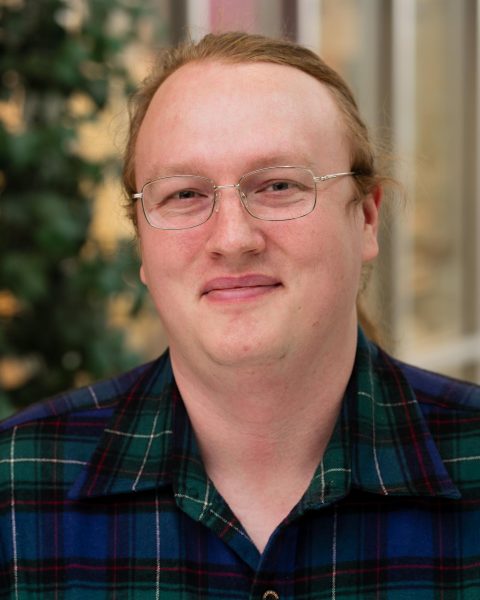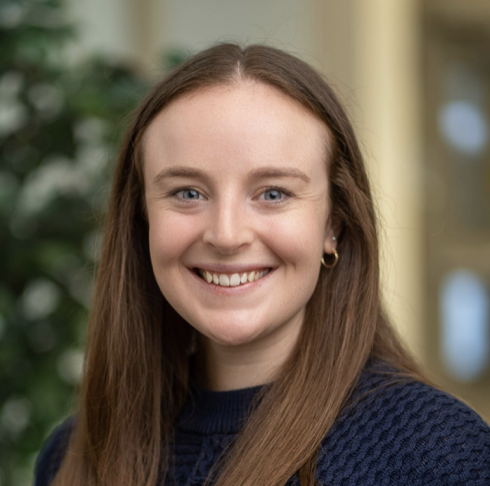Professor Kevin Walker: Education Policy and Political Philosophy
As a specialist in education policy, Assistant Professor in Political Science Kevin Walker has the distinctive ability to integrate his academic interests into not only the content of his lessons, but the very teaching methods he utilizes as well.
Hailing from San Diego, Calif., Walker attended Azusa Pacific University in Los Angeles where he double concentrated in philosophy and history. He then attended Claremont Graduate University.
“I decided I wanted to teach college pretty early on. I had such great teachers in college — I thought ‘Wow, I can do what they do,'” Walker said. “So I pursued a degree in political philosophy for my masters and political science for my Ph.D.”
Walker joined the Colgate community two and a half years ago as a visiting professor. He originally signed on for a one year contract, which has been renewed twice now.
“Colgate’s been wonderful though. Students here are great. Everyone is very helpful and encouraging. I love my classes,” said Walker.
This semester, Walker teaches two sections of a course called “Congress” that covers the legislative process, as well as a higher level political science course titled “Religion and Politics.” Both courses focus on American politics, but Walker has previously taught a number of global politics courses.
Walker has a well-defined interest in education policy, specifically in higher education and its interaction with American politics.
“It kind of grew out of my dissertation. I had a chapter where I talked about the rise of law schools. I was focused on the Supreme Court, that was my dissertation. I still love law but that chapter was very intriguing,” Walker said.
Through his dissertation and subsequent studies, Walker acquired a fascination with the history of university education in this country. A history, which in his view, has undergone many marked developments.
“[In] the old time college, they were just there to train elites who would become professionals. Not with any specific skill but just liberal arts generally — very heavy on Greek, Latin, mathematics and moral philosophy,” Walker said. “Into the 1870s you had Charles Elliot at Harvard who came on as a new president and said we’re just going to scrap all the classical stuff. You can do that if you want, but it will be in a department. And if you don’t want it, there will be other departments and you will have electives. Students can build their own education based on what their interests are.”
Walker had strong thoughts about Colgate’s own education philosophy and the role that students and faculty here play in bringing this philosophy into fruition.
“It feels like there’s an agreement between students and faculty here over what we are doing here. Students understand it and it’s made very clear to them. They’re here to learn and have an attitude that at least respects what they learn. And on the faculty, too, everyone is in their own discipline but we all do work together in building that culture that we have here — which is really good to see.”
With regards to personal research and publications, Walker often finds himself working on a number of pieces across disciplines at the same time. Currently, he is writing an article for the Association of Core Texts and Courses on ancient Greek historian Herodotus, a piece about the Yale report of 1828 and a few other articles.
Walker’s wife, Rachelle Walker, who is also an instructor in the political science department at Colgate, specializes in comparative politics and African politics. The Walkers share three young children.










Eli Macha • Jul 1, 2022 at 6:00 am
My wife and I both tooks classes from Dr. Kevin Walker at Vanguard University in Orange County. We agree he was a challenging, yet inspiring professor. It’s much easier to learn from someone who is passionate about their field! He emphasized reading original source material, which is a concept somewhat foreign to our education system. Having read the Federalist Papers, for example, makes a big difference!
Josh Finlayson • Mar 4, 2023 at 1:41 am
I agree with Eli. I took three classes with Dr. Walker and thoroughly enjoyed all of them. His passion for the material was contagious and he definitely made an impact on my life.